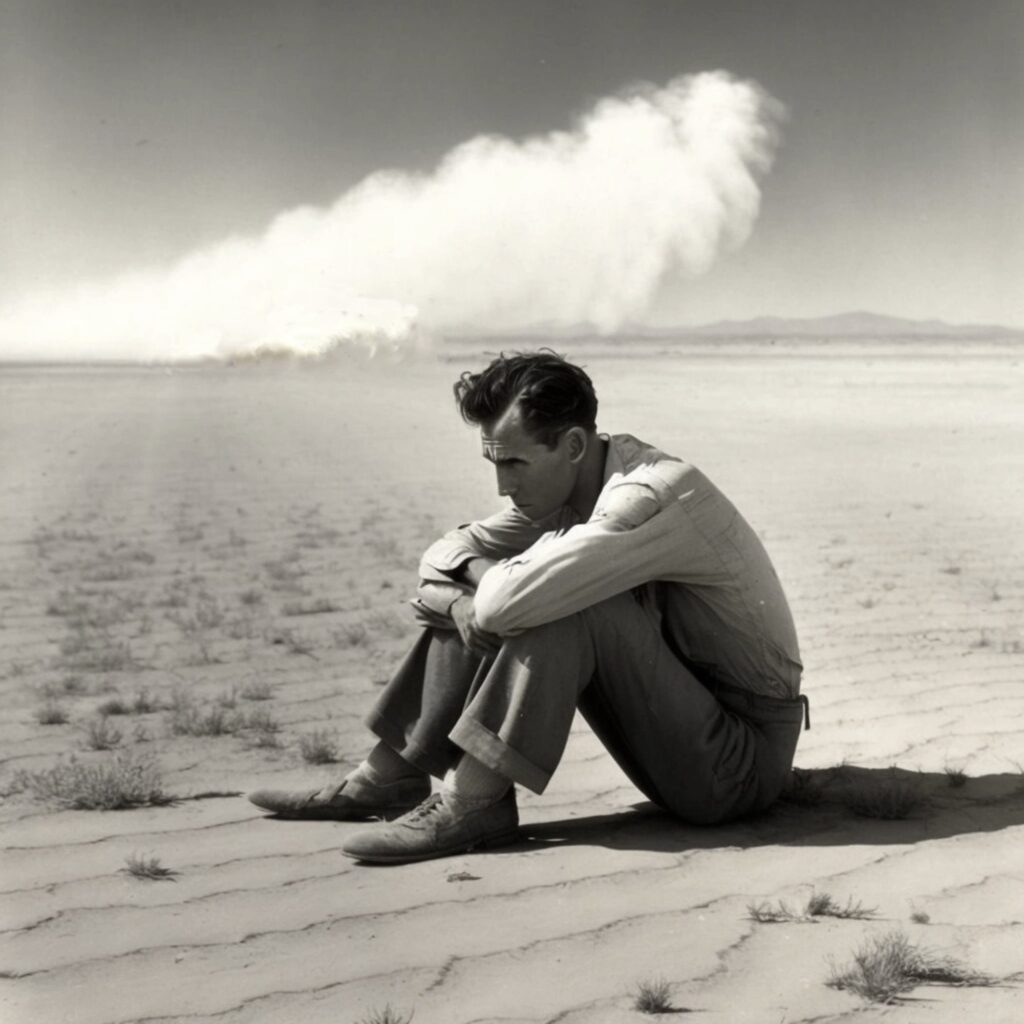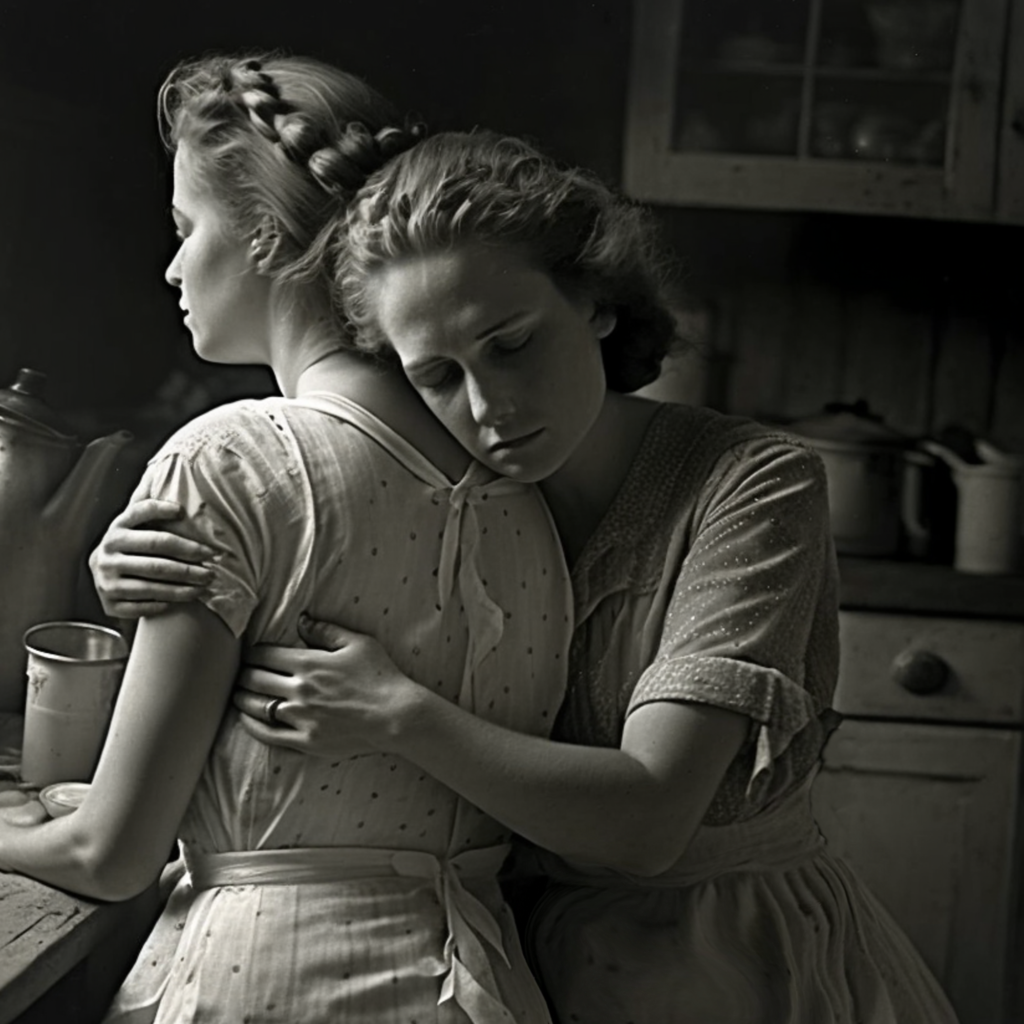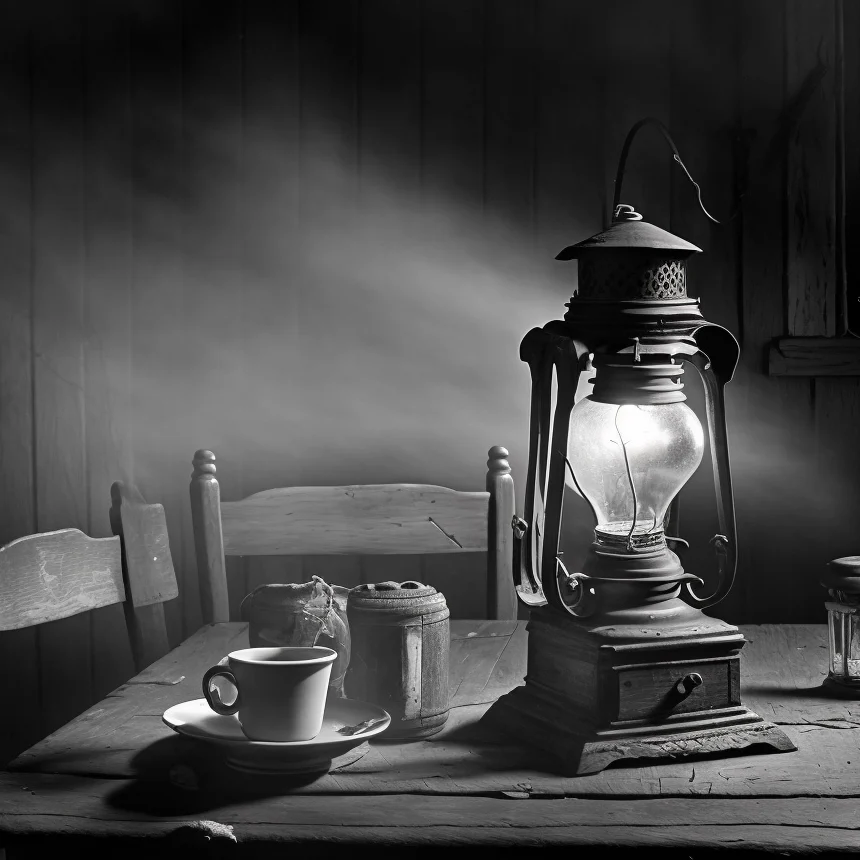a short story by Abby Harding
Mama’s pain started early this morning. By the time I woke on my mattress in the early dawn, she had already been pacing the kitchen for an hour, Daddy said. I don’t know if I’m more delighted or petrified. After fifteen years as an only child, the thought of a new baby still seems surreal.
If I could choose a day to become a big sister, though, I’d choose one like today. For once, the sky is clear, the wind calm–no dust, no sand. The early spring sunlight pouring through the windows high in our dugout walls looks like honey and feels just as sweet on my face. A Sunday, a week before Easter. A good day to be born.
“How can I help you, Mama?”

“I’m alright for now, sweetheart.” She smiles at me, her dimples showing. I do love her dimples. When I was small, I sat on her lap and tried to make her laugh so I could press my fingers into her cheeks, which always made her laugh even more. Her eyes sparkled back then. They still do, sometimes, but their shine seems smaller, like the dust has whipped the finish off them.
Daddy always says that we come from a long line of “next year people”–folks who cling to their optimism for better or for worse. Prices down? There’s always next year. Bad crop? It’ll be better next year. No rain this winter? Next year it’ll pour. I’m a lot like Daddy, cut from the same sturdy fabric. I worry that Mama isn’t.
“Are you sure I can’t do anything to help?” I ask again.
I try to hide it, but she must see the anxiety in my eyes because she pauses in her slow march around the kitchen to lay a warm hand on my cheek and press a kiss to my hair.
“Why don’t you read to me? Distract me from the waiting, hmm?”
I don’t mind that it’s make-work. We would have read together today, anyway. Mama and I love mysteries, and we’ve worked our way through most of the Boise City library’s collection at least once. Her favorites are The Adventures of Sherlock Holmes and The Woman in White. I like Edgar Allen Poe, but Mama thinks his stories are too gruesome. We both love Agatha Christie. Right now, we’re reading her new one–Murder on the Orient Express it’s called. It came out last year, but the library only just got a copy this month.
While we’re reading, Daddy goes out to the barn to tend the chickens and count the cattle. With the wind calm, there shouldn’t be any new drifts over the fences for the cows to climb. More than a few have wandered off and been lost to the plains. We don’t have many left, though. Daddy sold most of them to the Drought Relief men, but that money left as fast as it came, a few drops of water on the flame of the mortgage.
The day of the cattle sale tasted of defeat in a way few others have. I try not to think about that awful morning much, but sometimes, during the storms, when my head’s trapped under a damp towel to catch the dust, I can’t escape it. I can’t block out the smell of sweat and manure, the foul stench of fear. In my mind, I watch the men driving the cattle deemed too malnourished to slaughter into the great pit they’d dug in the dust. I hear the cries of frightened calves, the crack of rifles. I hope the baby never has to see such a sight.
When Daddy comes back in, I put the book down to make us some breakfast. I turn our cups upside-down as I set the table to keep the dust out–a habit as automatic as breath, even with the day so calm. We swallow enough dirt without eating it with our meals, too.
Mama doesn’t eat, though she pauses in her pacing long enough to sit with us while we do–one egg each, with a little tinned ham.
The morning drags on. Mama paces; I read. Daddy watches Mama, sometimes walking with her, sometimes sitting and waiting. I wonder if he remembers when I was born, if he’s thinking about how different our lives are now. If the contrast shocks him.
Around noon, we hear a knock at the door.
“See who that is, won’t you, Eliza Jane?” Daddy says, his voice low. Mama has paused, a sheen of sweat on her brow and upper lip, and leans her head against the wall, pillowed on her arms. Daddy’s hands rub little circles on her lower back, just above her hips. I don’t like the tightness around his eyes. I nod quickly, stepping to the door and out into the sunshine.
Jesse Wagner stands just outside. Behind him, I see his passel of little siblings waiting at the top of our dugout stairs, their faces peering down at me, eager. The Wagners are our closest neighbors on this side of Cimmaron county, and our closest friends. I think hardship glues people together more than anything in the world. We have no choice but to need each other.
“Eliza Jane, the kids and I packed a lunch for a walk today, and we wondered if you wanted to come with us?”
“It was Jesse’s idea,” chirps Pete, who’s only five. His sister, Abigail, hushes him with an elbow, but Jesse’s cheeks burn just the same.
“I’m sorry, but I can’t go today, Jesse.” I lower my voice. “The baby’s coming.”
Our eyes meet. I see my own worry reflected in his, and I know we’re both remembering the little Wagner twins. Born last year in the first weeks of June, one lasted a day; the other lived two. Jesse came to us on day three, at his wits end.
“I just don’t know what to do, Mr. and Mrs. Martin. Ma won’t let me touch the babies, and Pa… I just don’t know what to do.”
We all climbed into our wind-scoured Ford, Mama and Daddy in the front, Jesse and I in the back. I will never forget how the bottom of my belly dropped out as we drove up to the big farmhouse that morning. I used to be so envious of that house–big and white and above ground. I know now that some things even a fancy house can’t mend.
We found Mr. Wagner sitting in the yard, his legs splayed out in front of him, just watching the dark gathering on the horizon–another storm brewing. Daddy sat right down beside him in the dirt, not saying anything. Mama went into the house, and I followed her, Jesse trailing behind me.

How tiny and perfect those little girls were, fragile and nearly translucent. Baby angels. You could almost mistake them for dolls but for the tiny blue veins on their eyelids and their fine, fair eyelashes.
We buried them in shoeboxes. Daddy and Jesse worked fast to break through the hardpan before the storm reached us, the other children watching. Mr. Wagner held his wife while we prayed. She’s never been the same since that day.
I will never let any man get me with child as long as I live.
Jesse and I don’t talk as I walk the Wagner kids back out to the road, but the little ones prattle on, excited for their picnic. I honestly do wish I could go with them. We haven’t had a day this fine in months, and I revel in the warmth of the spring sunshine as it heats my hair. I turn my face up to it, and I catch Jesse doing the same. We grin at each other, then he chases off down the road after his siblings.
On my way back to the house, I stop to look at the empty fields. Daddy used to lift me up onto his shoulders when I was little, and I felt I could see over the wheat all the way to Canada.
“Not a fence between here and the North Pole, Eliza Jane.”
“I’ll wave to Santa!”–our call and response.
Sometimes, I nearly double over with the pain of the change. Just five years ago, I could wade through tall, green grass in the ditches and feel the cool, damp earth beneath my feet, its aroma heady, full of promise. Daddy says we got greedy, that we took more than we could use, and now God is taking everything back, right down to the dirt we took for granted.
Sometimes, during the storms, I wonder where that black soil is now. Are our fields raining down on Chicago? Is President Roosevelt wiping our land off his desk when he sits to write his speeches?
“We’ve all taken a sound shellacking,” Mr. Thomas said to Daddy at the grocer’s one day. And that’s about the truth of it. We’ve been hammered down so bad and for so long, we’re smooth and hard, varnished with hardship, set and stuck in it. The storms have only left behind those of us who are as tough and unyielding as the hardpan left in the fields–just us next year people. Everyone else has blown away.
When I go back inside, Mama still leans on the wall. Her face looks waxy, and I remember those babies again.
“We need to fetch Dr. Collins now, Helen,” Daddy says to her, low and careful. I expect her to shake her head, to sizzle at him the way she does when she’s annoyed, but she just sways slowly, then nods. My heart drops.
“Eliza Jane…” Daddy looks at me, lost for words.
“I’ll look after them,” I say.
He nods, his lips pressed thin, then he heads to the barn. After a minute, I hear the Ford sputter to life and trundle off toward Boise City.

The next hours pass in much the same way, though Mama’s pains get stronger. I hear her breathing change every time her belly clenches. I walk with her, talking softly, trying to encourage her, but not knowing what I can say to make this alright. The baby should be here by now, shouldn’t it?
“Come on, little one,” I whisper. “It’s a beautiful day. It’s time to come out. You’re late!”
I tell Mama I need to use the outhouse, just to have an excuse to look down the road. Instead of Daddy’s car, I see a line of night in the north. Dust.
“Please, God, not today. Please don’t bring us dust today. Let Daddy get home with Dr. Collins first, God. Please let my Mama live.”
When I go back inside, I act as calm as I can. I don’t want to scare Mama. Besides, the storm could peter out or change directions before it gets here. No need to worry her yet.
I can’t keep my eyes from drifting to the windows, though. With a jolt, I remember Jesse and the little kids. I hope they’re close to home, that they won’t get caught out there.
Where is Daddy?
The wind picks up. I hear the scrape of a tumbleweed across the roof shakes and the hiss of sand against the windows. I begin to prepare the room. First, I light the kerosene lamp, then I start to take down the curtains and soak them in the dish bin. I wring them out enough they won’t drip, then rehang them, drawing them across the windows. Anything to catch the dust.
I pause as I hang the last curtain, staring at the storm hurtling towards us. I can’t see the top of the cloud, just a wall of black stretching to heaven.
The light begins to change: twilight falling hours too early. Usually, when the dust comes, that in-between haze lingers–dim enough to want the lamp, but not total darkness. This time is different. Within minutes, I can see nothing outside, a midnight with no stars.
My heart hammers, remembering stories about the end of the world, how the sun will be blotted out forever.
Mama lets out a low moan. I’ve heard that sound in the fields during calving season; I know what it is. The baby—coming with or without the doctor.
I see a dark puddle growing on the floor at her feet. I know there should be water, but is that blood? Mama moans again.
“Eliza Jane, help me walk to the bed.” She doesn’t sound like Mama, her voice drenched with fatigue, but I let her grip my hands, guiding her across the night-dark room. The kerosene lamp casts hollows on her cheeks and under her eyes, and I wonder if I look as ghastly, as afraid.
“You’re going to have to help me guide her out, ‘Liza.”
I’m not ready. But sometimes, our trial is by fire, and we don’t get a choice. Mama squats by the bed, her hands gripping the thin sheets, her teeth gritted around a scream. I grit my teeth, too, and hold her steady. We are all that’s left, the last pin-prick of light before the end. The darkness will swallow us whole.

The wind tears at the house, and my baby sister tears her way into a world turned upside-down: dark in the daytime, the ground made sky. She slides out pale and silent, a fish unable to breathe the air, and I hold my breath, too, my heart shattering. I’ve cried so many times since the storms started. Someday, I’ll be out of tears, my eyes as dry as the skies, and I’ll weep dirt.
“Mama, why is she quiet?”
“Hush, ‘Liza, hand her here.”
Mama hooks a finger in the baby’s mouth, swiping it clean. Surely it’s not full of dust already? My head feels stuffed with cotton. She lays the silent baby across her lap, and rubs her back with a firm, flat hand.
At first, nothing changes, but then the baby squirms, shakes a fist and–
“She’s alright!” I shout, my own tears mingling with the baby’s cries.
“Yes,” Mama whispers, exhausted. “Here, ‘Liza, wrap her up and help me. There’s more coming.”
I think she means another baby at first, but no, just the rest of the afterbirth, red and hot, still connected to my sister by a plump cord. Mama has me wrap that up, too, and set it beside the baby, waiting for Dr. Collins.
The sky outside begins to lighten, the world hazy instead of invisible. Mama lays curled around the baby, nursing, her face pale but pleased. I marvel at the pair of them, the miracle of life in the face of unrelenting odds.
But perhaps I shouldn’t be so surprised. We’re next year people, after all, and we’ll be here to see it when it comes.
I wrote A Midnight with No Stars for the first round of NYC Midnight’s Short Story Challenge 2023. Nearly 6,000 writers signed up this year! Writers were assigned to one of 215 groups, each group was given a story prompt, and then we had 8 days to produce a story of no more than 2500 words based on that prompt. The top five writers from each group will move on to the next round (to be announced April 2023). My prompt was:
Genre: historial fiction
Setting: a shellacking
Character: a latecomer
Read more Newsletter Exclusives here.

